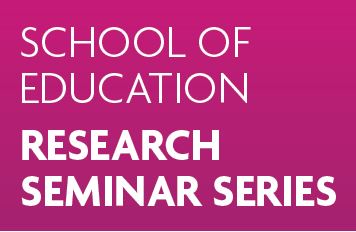This is a past event
As part of the School of Education Research Seminar Series, Dr David R Smith will present research from a project undertaken by himself, Dr Graeme Nixon (University of Aberdeen) and Dr Jo Pearce (University College London) arguing that bad - violent - religion is not false religion, in spite of such representations by Religious Education teachers.
On 10th September 2014, President Obama stated: “ISIL is not ‘Islamic.’ No religion condones the killing of innocents”. In this statement, Obama sanitised religion (in this instance, Islam) - sealing it off from murderous contamination. This same well intentioned - yet mistaken - definitional turn is seen in wider contemporary cultural discourse in which ‘true’ religion, being essentially loving and peaceful, is distinguished from ‘false’ religion, which constitutes a harmful and dangerous distortion.
In UK schools, mixed-method, national dataset (survey and semi-structured interviews) shows that some RE teachers similarly sanitise religion of wrongdoing. Furthermore, representations of religion in textbooks, examination papers, and curriculum support material compounds this benign, essentialist, conceptualisation of religion - be it Christianity, Islam, Buddhism, etc.
This bad-religion-is-false-religion discourse is unsurprising for two reasons: the first, we argue, is political; the second, philosophical. Many RE teachers are concerned to counter media representations connecting Islam with violence. Second, a presentation of religion as a monovalent, homogenous, essentialist concept is commonplace. Such an understanding erroneously misrepresents and distorts complex social realities (Religions) - rendering it impossible for Buddhism, for example, to be enacted as both peaceful and violent. In an apologetic turn, the latter is deemed a ‘false’ representation.
To be religiously literate is to understand the complexities of religion - to appreciate that ISIL is an expression of Islam; that violent Christian anti-abortionist direct-action is an expression of Christianity; and that Buddhist monks physically attacking Muslims in Myanmar is an expression of Buddhism. Although not ‘false’ expressions, they do represent bad forms of religion (as opposed to bad religions).
The counterbalance is also valid: Muslim Aid, giving out food and clothing to people in need is an expression of Islam. Similar acts of charity apply to Christianity and Buddhism.
Whilst we can reasonably distinguish between: desirable and undesirable religion; non-harmful and harmful; or even good and bad expressions of religion - it is flawed to present these distinctions as synonymous with ‘true’ and ‘false’ religion.
RE can only enable and encourage religious literacy if religion and religions are presented as multifarious, complex, social phenomena. This cannot be predicated upon a conceptualisation of harmful religion as ‘false’ religion, which is inimical to a deep understanding of religion in our world today - as in times past.
- Speaker
- Dr David R Smith
- Venue
- MacRobert Building Room 304
- Contact

